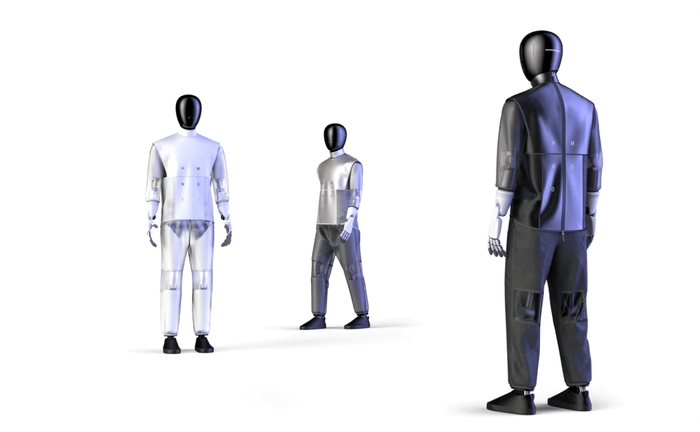Flying Taxi Gets Michelin Tires; Electric JetFlying Taxi Gets Michelin Tires; Electric Jet
The tires had to be custom designed for safety weight and reliability requirements for the Lilium jet

The developer of an electric vertical takeoff and landing (eVTOL) jet and a well-known tire maker signed an agreement to provide tires for all the flying taxis.
Lilium and Michelin announced the partnership for the design, serial production and support of tires for the Lilium electric aerial vehicles (EAV).
The two companies started working together more than a year ago to develop and produce custom tires for the Lilium electric jet.
The tires had to be custom designed for the safety weight and reliability requirements for the Lilium jet. The first tires are expected to be delivered this month.
“The Michelin tire designed for the Lilium jet is truly one-of-a-kind and a major advancement in this critical aviation component,” said Sophie Bréchoire, president of the Michelin Group aeronautic activities. “It marries the challenge of lightweight construction for eVTOL aircraft with the renowned quality and reliability of Michelin aircraft tires. This collaboration, which will introduce new standards in durability for aircraft tires, is a perfect illustration of the Michelin Group's strategy of supporting the transformation of aviation to make it more sustainable.”
The Michelin tires offer calculated weight efficiency, aligning with Lilium’s payload objectives.
“The tires are specially designed to facilitate safe vertical take-off and landing operations, delivering exceptional performance while adhering to stringent weight limits,” stated the partnership announcement.
“We are proud of the innovation and development work completed alongside Michelin that has culminated in this agreement,” said Klaus Roewe, Lilium CEO. “This critical component, which will help to mobilize and operate our jet at our required specifications and performance levels, serves as a confirmation of our unrelenting pursuit of innovation and sustainability in regional air mobility.”
Lilium recently started assembly of its electric propulsion system on a path to manned flights in 2024.
The Lilium eVTOL craft is a jet, unlike most EAVs.
The company intends for its seven-seater vehicles to be used as a regional air mobility service, connecting cities and towns 25 to 125 miles apart at speeds of up to 185 mph.
The aircraft features forward canards (small wings near the front) along with main wings and a distributed propulsion system with fixed landing gear without hydraulics.
During takeoff, the plane would use its 36 electric ducted fans to hover for up to 25 seconds and 20 seconds during the landing phase, according to the company. Most of the flight time would be in the cruise stage with a relatively short takeoff and landing time.
The company estimates the range of the craft at 150 miles upon entry into service in 2024.
The fuselage for the Lilium jet was developed by Aciturri in Spain, with delivery to Lilium facilities in Germany later this year.
Aciturri, also a Lilium investor, has designed and manufactured airframe components for Airbus, Boeing and Embraer.
Lilium recently secured $192 million in financing in addition to a coming public offering. It received funding from different investors including board members and Tencent Holdings, one of its initial backers.
The company, founded in 2015, has manufacturing facilities in Munich, Germany, with teams in the U.S. and Europe.
The Federal Aviation Administration (FAA) recently issued Lilium a certificate validation of its Jet, having previously obtained airworthiness authority from the European Union Aviation Safety Agency.
Lilium is among a small number of companies seeking certification of its electric aerial vehicle (EAV) for both the U.S. and Europe.
The company is not alone in the race for new air transportation services, including flying cars, personal air vehicles, both ultralights, which do not require a pilot license, and certified, which require a license.
One eVTOL company, Joby Aviation, recently announced the planned building of a facility in Dayton, Ohio, to deliver up to 500 eVTOL vehicles a year.
The new manufacturing facility is the foundation for a planned aerial ride-sharing network. Joby has partnerships with Uber and Delta Air Lines.
Like what you've read? For more stories like this on flying cars and emerging technologies, sign up for our free daily email newsletter to stay updated!
Read more about:
Flying CarsAbout the Author
You May Also Like







